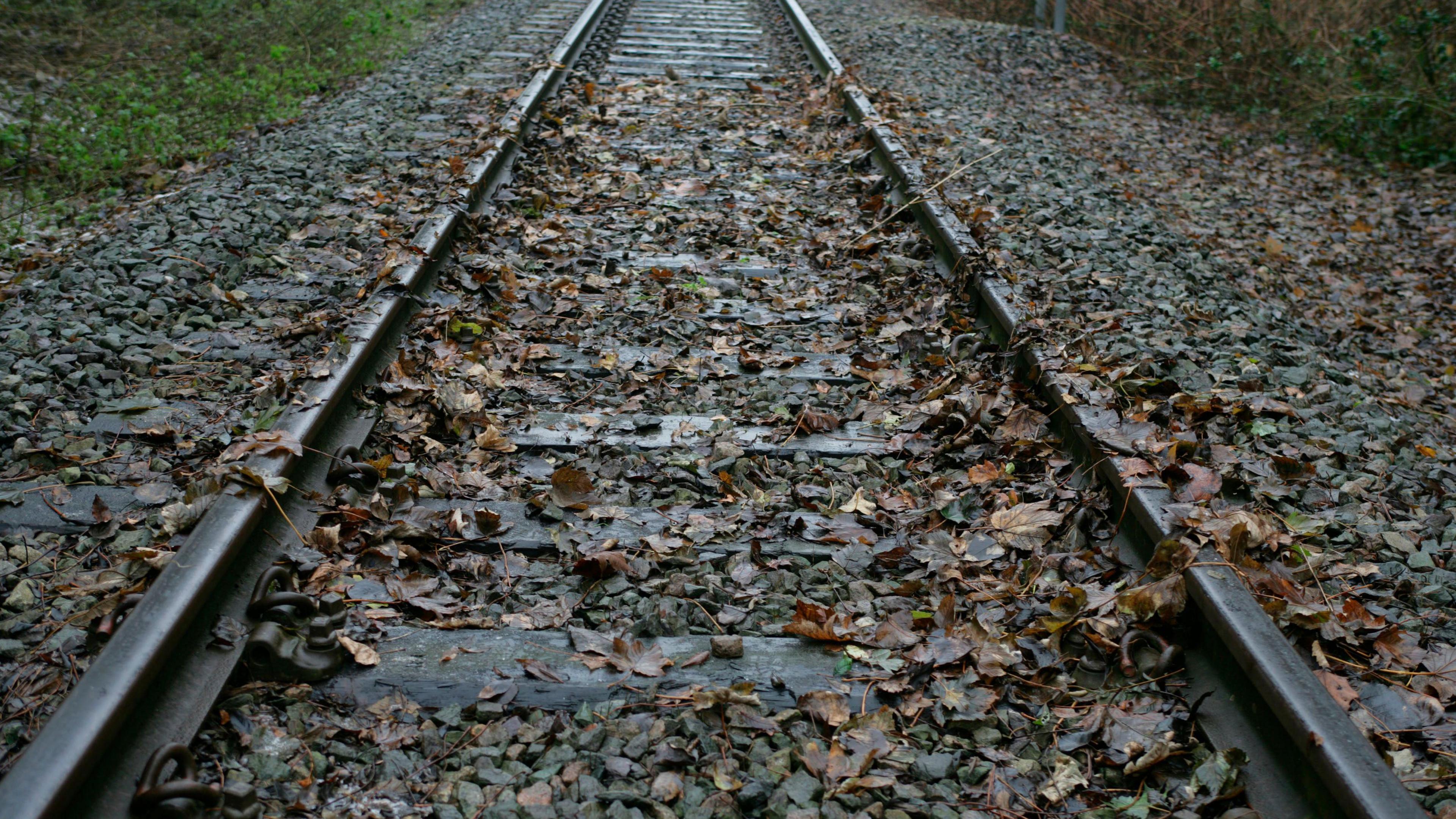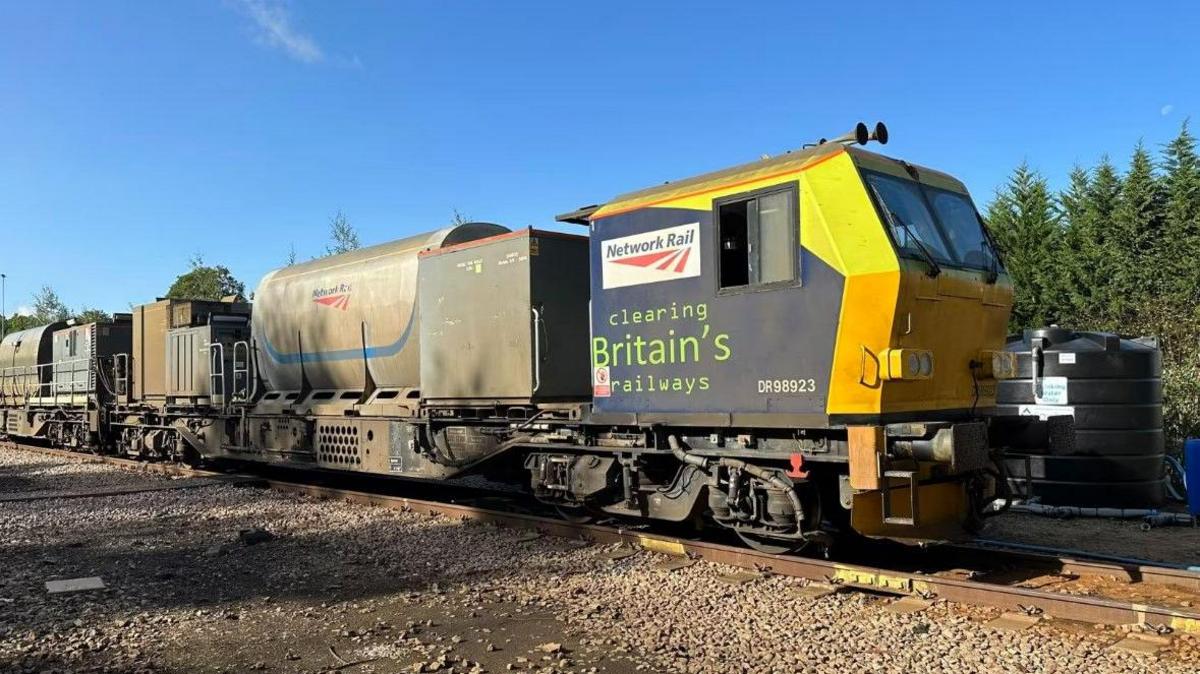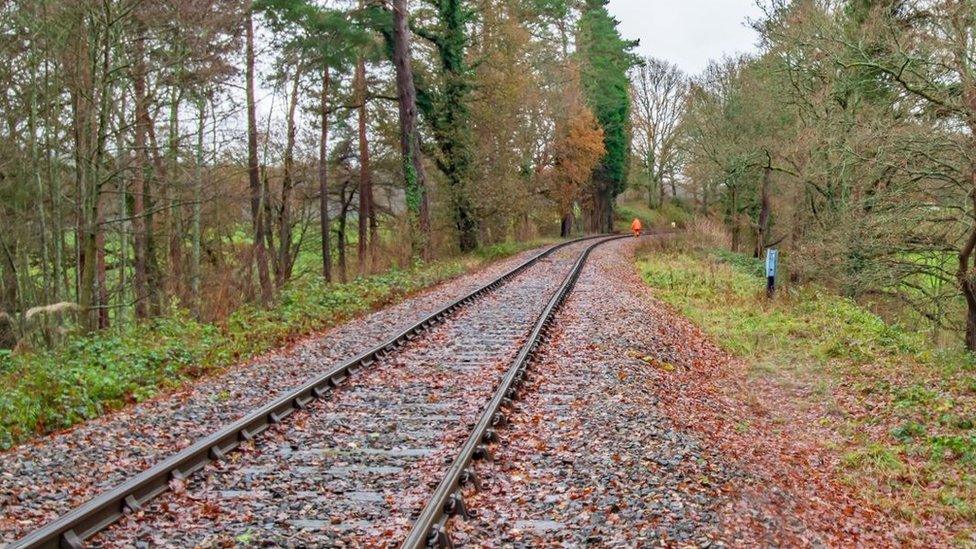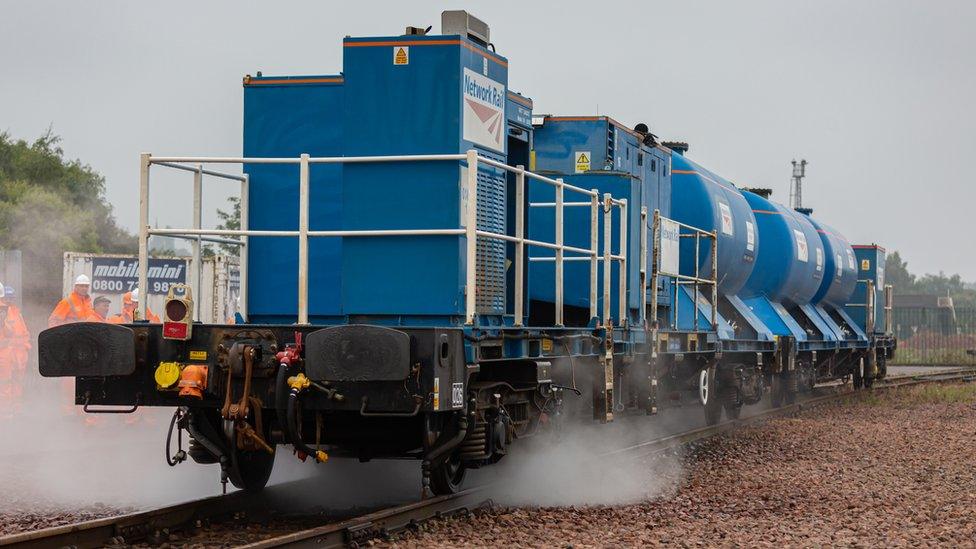Specialist trains clear leaves from railway lines

Network Rail said thousands of tonnes of leaves fell onto the tracks every autumn causing disruption
At a glance
A fleet of specialist trains are to help keep trains running in the south east of England throughout the autumn
Network Rail said a hard slippery layer of compressed leaves on the tracks was the "railway equivalent of black ice"
The fleet is expected to travel 318,000 miles of track, the equivalent of 12 times around the Earth
- Published
A fleet of 25 "leaf-busting" trains will help keep passengers moving throughout the autumn, Network Rail has said.
Specialists trains, including 19 Windhoff Multipurpose Vehicles (MPVs), will be deployed from seasonal delivery depots in Effingham, Horsham and Tonbridge.
The specialist trains use high-pressure water jets to clear leaves from the line and apply a sand-like gel to help trains grip the rail better where necessary.
Operating until mid-December, the fleet will treat a total of 318,000 miles (512,000km) of track to rid the railway of leaves, snow and ice.
Network Rail said trains travelling in wet weather could compress leaves into a hard slippery layer - the "railway equivalent of black ice" on the roads.
Slippery rails make it harder for trains to accelerate and brake, meaning drivers have to move out of stations slower and brake earlier to stop in time.
The build-up of leaves also creates a barrier between the train wheels and the electrical parts of the track that let signallers know the train's location.

A Windhoff Multipurpose Vehicle used to clear the railway lines
Network Rail said it was also preparing to tackle the colder weather.
Across much of south-east England, trains are powered by conductor rails.
The rails can get covered in ice and snow, which can cut off the power supply.
MPVs and specialist snow treatment trains help scrape ice off the conductor rail head and spray the rails with anti-icer.
Jenny Saunders, customer services director for Govia Thameslink Railway, said: “Fallen leaves can cause as much disruption as severe winter weather.
"Over the next few months Network Rail’s pre-emptive activities with their specialised equipment are vital for keeping our customers moving."
Follow BBC South East on Facebook, external, on X, external, and on Instagram, external. Send your story ideas to southeasttoday@bbc.co.uk, external.
Related topics
- Published3 October 2023

- Published3 October 2023
